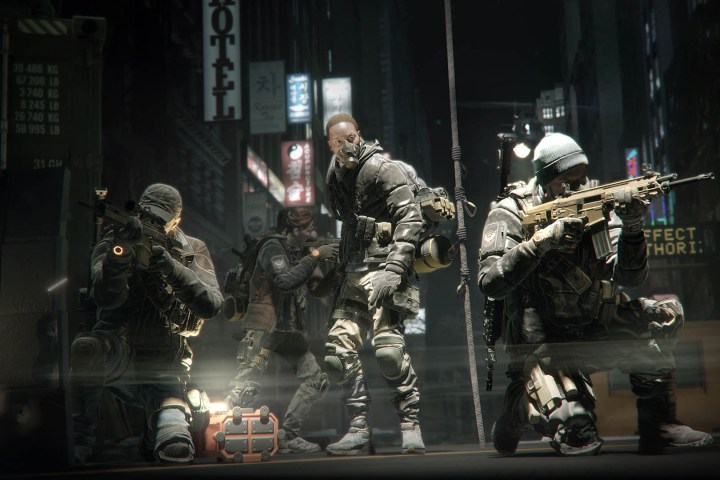
The Division uses a network of dedicated servers that are located “all over the world,” in addition to data servers located in Montreal that keep track of your character’s statistics and progress. Holmquist describes the server as “authoritative,” as the user’s client is not responsible for generating loot drops or the majority of combat, but the system isn’t perfect.
“Proper server validation” has been a consistent problem for months. In an attempt to keep the game running more smoothly across a variety of internet connections, there are some things, such as fire rate, that are still being calculated by the user’s client, and this opens up the possibility for cheating.
“We have quite a lot of data on people cheating with fire rate right now. I think there will be some bans coming in the future,” Holmquist said.
It’s not all about catching cheaters, though. The Dark Zone experience is currently pretty lenient with hit detection, and lagging players can “hit” you even though you were already behind cover. Holmquist says that the code is currently “a bit too generous” with this, but it’s the same underlying issue: trying to make the experience smooth for every user, like you’d expect from a shooter, while also having the systems in place to make the game fair for everyone.
“We’re very aware of the problems that are there,” Holmquist says. “We’re fixing them. We know who’s cheating. They’re going to get banned.”
Can they fix the problems? In a blog post that has been making the rounds over the last few days, Glenn Fielder, who has been maintaining a blog on game development for more than a decade, paints a pretty grim picture. In the majority of other competitive shooters, “the server is the real game.” There’s little to no client-server validation taking place. Without this system being completely changed to make this all take place on the server instead of the client (and thus risk making the experience less smooth for slower internet connections), Fielder is doubtful the game can be fixed at all.
“I hope they have something up their sleeves,” Fielder says. “I hope they have a valid networking approach based around server-side checks that can address this issue in some way. But unfortunately, so far, all signs point to no.'”


